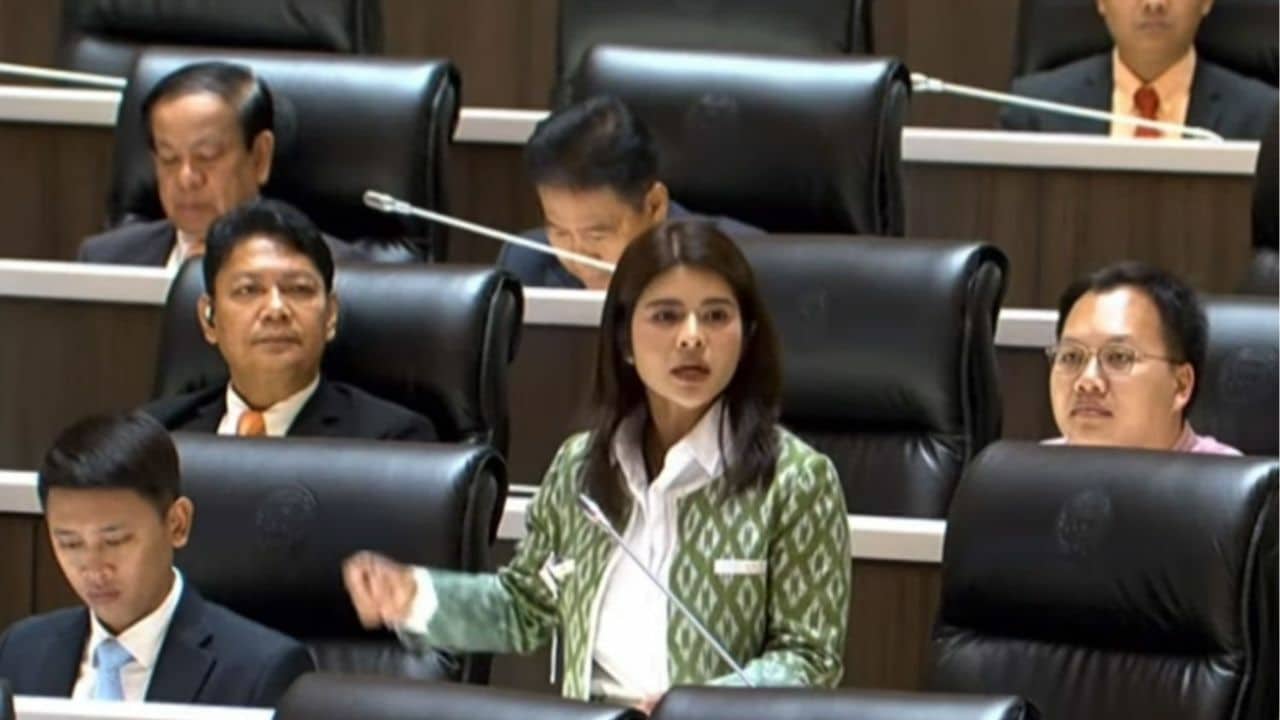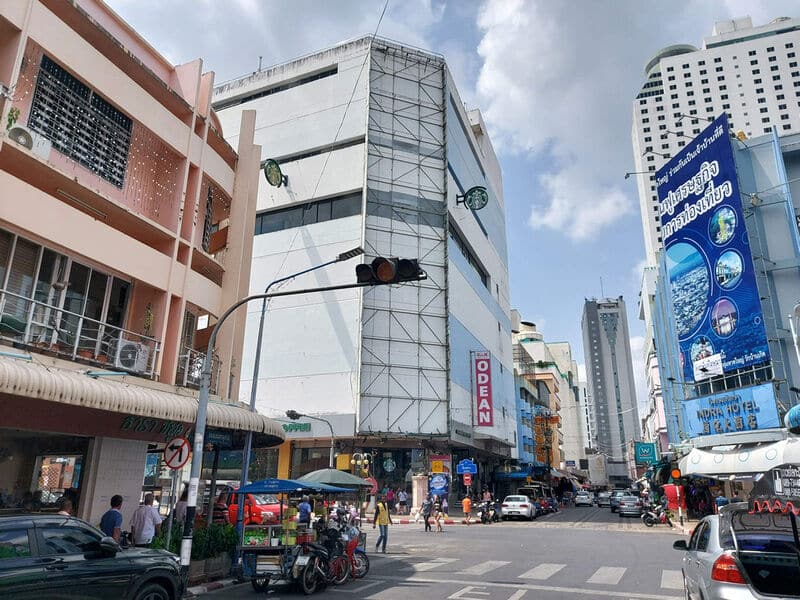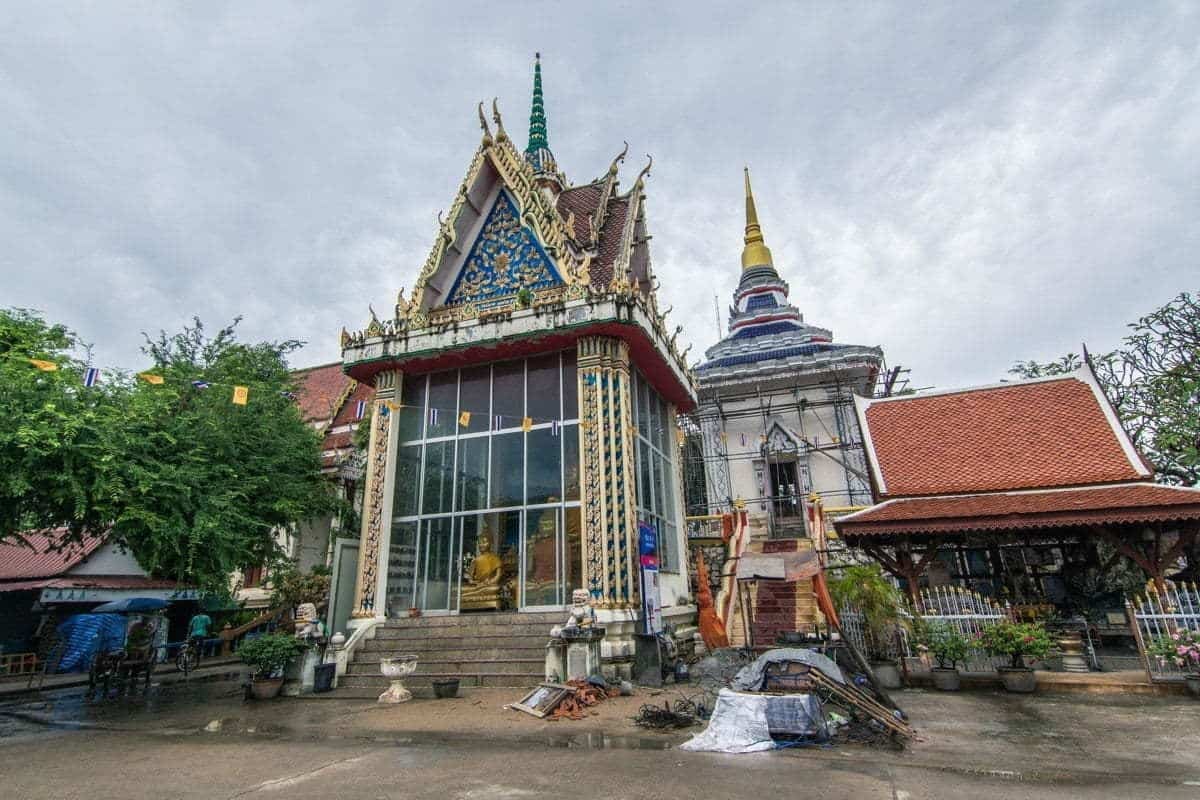People’s Party MP slams 26.5 billion baht budget for inequality
70% of spending in Bangkok widens rural Thailand’s development gap

People’s Party MP Pukkamon Nunarnan criticised the government’s 26.5 billion baht provincial budget yesterday, arguing that it perpetuates inequality and fails to meet local communities’ needs.
During the third day of the debate on the 2026 fiscal budget bill, Pukkamon, also known as “Lisa,” targeted the Interior Ministry’s budget. She asserted that the allocation model demonstrates a lack of power decentralisation and local development, favouring major cities and widening the wealth gap.
Citing World Bank data, Pukkamon highlighted that around 70% of government spending occurs in Bangkok, exacerbating the development divide between urban and rural areas. Despite their potential, more than half of Thailand’s provinces, especially those along borders and in the southernmost areas, remain underdeveloped.

Prime Minister Paetongtarn Shinwatra had pledged to transform the nation into a land of opportunity for all during the budget debate. However, Pukkamon expressed scepticism, suggesting that these promises remain unfulfilled. She noted that the budget allocation remains consistent with past practices, focusing on provincial and cluster projects. These funds predominantly support infrastructure such as roads, bridges, lighting, and embankments, rather than enhancing people’s quality of life.
Pukkamon further criticised the annual 700 million baht reserved for provincial governors, noting that these governors, appointed by the Interior Ministry and not directly accountable to the public, often lack understanding of local needs due to frequent rotations. She asserted that the allocation process favours larger, wealthier provinces, thus intensifying inequality.
She cited the lower north provinces—Kamphaeng Phet, Phichit, Nakhon Sawan, and Uthai Thani—as examples where infrastructure investment overshadows human development initiatives. Conversely, the disadvantaged deep South received 1.2 billion baht for construction and training projects, yet none for quality of life or education improvements.

In northeastern provinces like Bueng Kan, Nong Bua Lam Phu, and Amnat Charoen, Pukkamon noted a lack of healthcare access and no projects to address doctor shortages, with funds instead allocated to road and bridge construction. Southern provinces along the Gulf of Thailand and the Andaman Sea received 1.27 billion baht for tourism development, primarily for roads, bridges, and lighting, while an additional 3.8 billion baht was dedicated to road construction, totalling 5 billion baht for southern infrastructure, reported Bangkok Post.
Pukkamon argued that these allocations reflect political power dynamics, with an emphasis on construction projects rather than creativity. She called for the government to delegate budgeting authority to local administrative bodies, which are more attuned to residents’ needs.
She stated that the current budget allocation system impedes decentralisation, leaving people disadvantaged by being left behind.
Latest Thailand News
Follow The Thaiger on Google News:


























